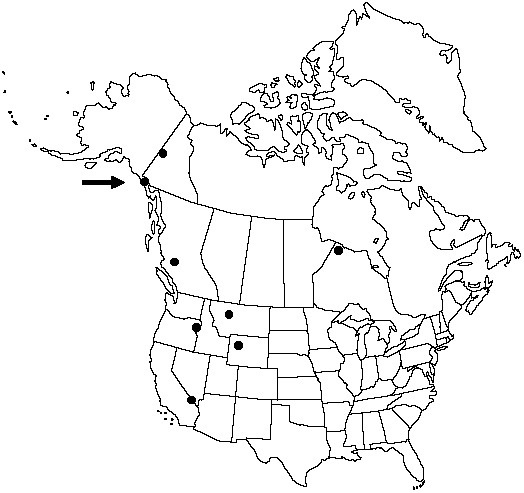Botrychium ascendens
Amer. Fern J. 76: 36, figs. 1, 2. 1986.
Trophophore stalk 3–10 mm, 1/6 length of trophophore rachis; blade yellow-green, oblong to oblong-lanceolate, 1-pinnate, to 6 × 1.5 cm, thin but firm. Pinnae to 5 pairs, strongly ascending, well separated, distance between 1st and 2d pinnae not or slightly more than between 2d and 3d pairs, basal pinna pair approximately equal in size and cutting to adjacent pair, obliquely narrowly cuneate, undivided to tip, margins sharply denticulate and often shallowly incised, apex rounded, venation like ribs of fan, midrib absent. Sporophores 2-pinnate at base of sporangial cluster, 1.3–2 times length of trophophore. 2n =180.
Phenology: Leaves appearing in late spring to midsummer.
Habitat: In grassy fields, widely scattered
Elevation: 0–2500 m
Distribution

B.C., Ont., Yukon, Alaska, Calif., Mont., Nev., Oreg., Wyo.
Discussion
Botrychium ascendens is a distinctive little moonwort that grows with B. crenulatum, B. lunaria, and B. minganense. This species and B. pedunculosum are the only grapeferns that often have extra sporangia on the proximal pinnae.
Selected References
None.